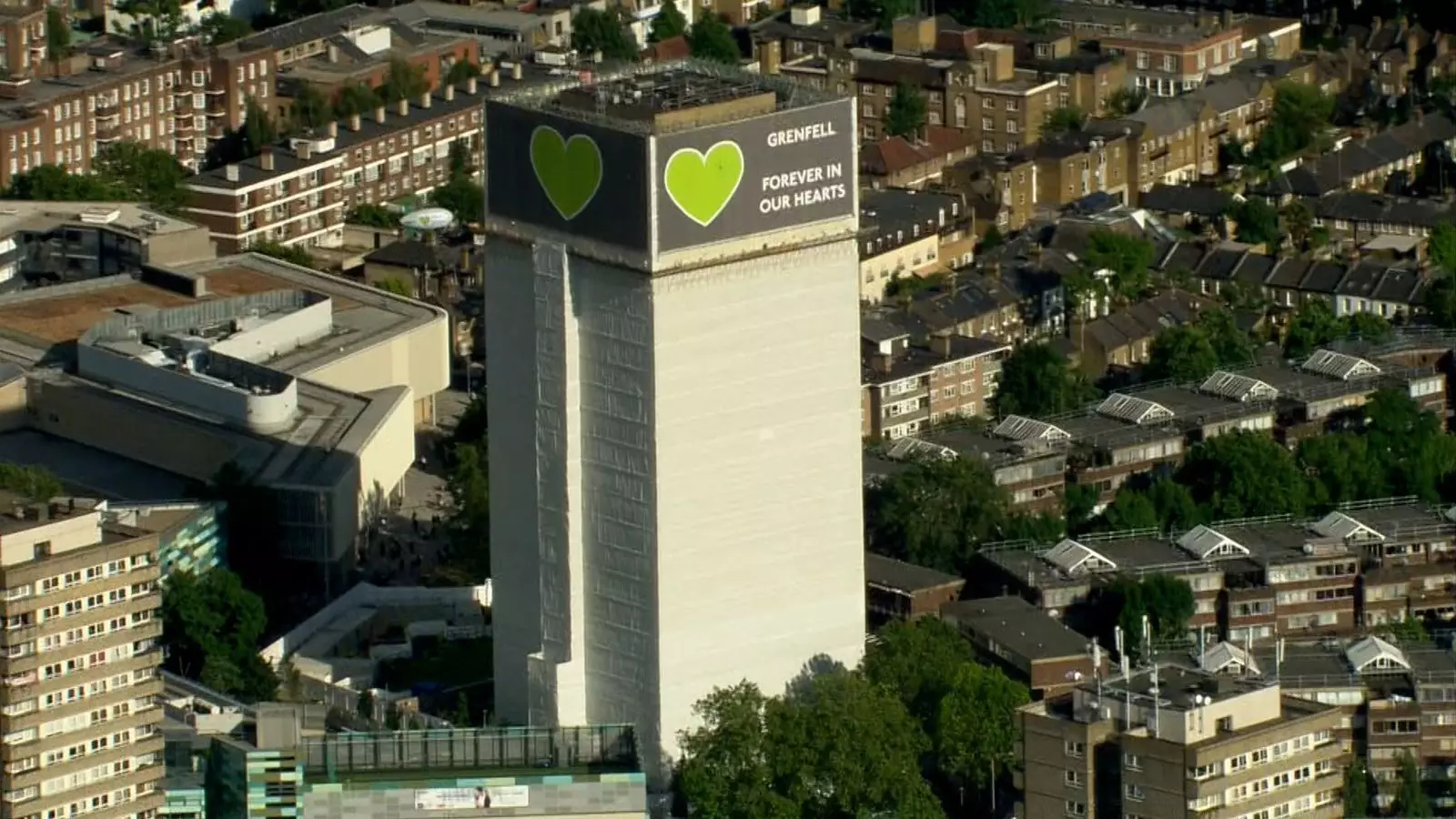The Grenfell Tower fire remains etched in the collective memory of the UK as a national tragedy that claimed 72 lives and left countless others in mourning. Nearly eight years have passed since the incident, yet the implications of that fateful night continue to resonate within the community. Recently, the government’s announcement to demolish the tower has reignited a fierce debate regarding the recognition of those affected by the disaster. Criticism has emerged from survivors and bereaved families, who accuse officials of ignoring their voices in this deeply personal and controversial decision.
At the center of the poignant discourse is Grenfell United, a grassroots organization representing bereaved families and survivors. Their vehement response to the government’s demolition announcement portrays a community still grappling with grief while seeking acknowledgment and agency over their collective narrative. Angela Rayner, the deputy prime minister, faced intense scrutiny during a recent meeting where bereaved individuals voiced their distress, illuminating a stark disconnect between governmental decisions and the sentiments of those enduring the tragedy’s aftermath.
One of the critical frustrations as articulated by Grenfell United is the perceived lack of genuine consultation. Families reported that no solid rationale was provided for the demolition, coupled with ambiguity surrounding who had been consulted in the decision-making process. The sentiment expressed – that sustained mourning for their loved ones has been compounded by a sense of being unheard – echoes within the broader discourse about how tragedies are commemorated and remembered.
The government maintains that these decisions are inherently sensitive, reflecting the diverse opinions within the affected community. A spokesperson for the Ministry of Housing stressed that the intention is to keep the voices of the impacted individuals at the forefront of the conversation. However, the palpable frustration from families indicates a discord between political intent and community sentiment. As bereaved families seek closure, it appears that governmental assurances are insufficient to quell their hurt and confusion.
This disagreement points to a larger challenge in how local communities engage with broader governmental operations, particularly following traumatic events. The sequential failures following the Grenfell disaster, as highlighted by the public inquiry which uncovered “systematic dishonesty” among authorities, render trust in governmental processes tenuous at best.
A Call for Commemoration: The Future of Grenfell Tower
Amidst the pain, there is an emerging consensus from bereaved families regarding the future of the site. Grenfell Next of Kin suggested that discussions should pivot away from the tower’s demolition and focus on what can emerge in its place— a physical and metaphorical reimagination of healing and remembrance. Their calls articulate a common desire for a tangible commemoration, something that encapsulates the memory of lost lives while paving the way toward recovery for families deeply affected by loss and trauma.
This desire highlights the essential need for a decisive and thoughtful engagement process with the community, moving beyond mere consultation to encompassing a more profoundly inclusive approach. It underscores the urgency to foster dialogues that lead to meaningful, respectful actions reflecting the community’s wishes.
As the Grenfell Tower debate continues to unfold, it serves as a reminder of the broader implications of governmental decisions on affected communities. With voices of sorrow clamoring to be heard, and a future hanging in the balance, the responsibility now lies with policymakers to confront uncomfortable truths and ensure that their decisions do not further marginalize those already suffering.
Moving forward requires not just talk but transformational action—action that honors those lost while empowering families to directly shape the legacy of the Grenfell Tower disaster. The journey toward closure is fraught with complexity; yet, united, the voices of the bereaved families can foster a new understanding of how grief can be turned into a purposeful recognition that ensures such a tragedy is not forgotten.


Leave a Reply